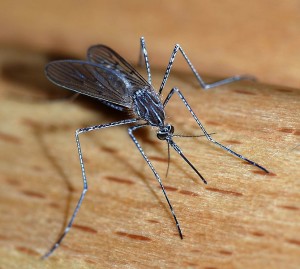
Reducing breathlessness in lung cancer
Breathlessness is a common problem for patients with lung cancer and is often responsible for emergency admissions to hospital. Breathing training services have previously been found to be beneficial in reducing breathlessness, but it is not clear whether repeated sessions are necessary or cost effective. A new study has found that taking part in three sessions does not lead to any additional benefits over a single session.
In a multicentre randomized controlled trial, 156 patients were randomized to receive either one or three breathing technique training sessions.

Sessions lasted one hour and patients were also given written and DVD reinforcement material and followed up by telephone a week after the last session.
Both groups experienced a clinically significant improvement in breathlessness, but there was no evidence of any additional benefit of three sessions, suggesting the challenge for patients of attending multiple sessions may be unnecessary.
A web-based lifestyle intervention helpful in metabolic syndrome
Metabolic syndrome is a growing public health problem worldwide. It is a collection of conditions including central obesity, increased triglycerides, reduced HDL cholesterol, hypertension and elevated fasting blood glucose. New research suggests that an interactive, web-based lifestyle intervention may be beneficial in managing metabolic syndrome and promoting a healthy lifestyle.
Researchers in Iran conducted a randomized controlled trial involving 160 patients with metabolic syndrome. All participants received information on the condition and were encouraged to make changes to their diet and physical activity levels.
In addition, those randomized to the intervention group were given access to an internet-based program and were encouraged to regularly visit their profiles. Those in the control group received an email every three weeks providing information about metabolic syndrome, diet and physical activity.
During the six month follow up, participants in both groups showed improvements in several metabolic syndrome components. Patients in the intervention group had significantly greater weight loss and reduction in blood glucose compared to the controls.
Optimal dosing in malaria treatment

Artemether-lumefantrine is a common combination treatment for uncomplicated Plasmodium falciparum malaria. New research suggests that standard lumefantrine dosing regimens may be insufficient in some groups, including very young children, patients with high parasitemias and those in very low transmission intensity areas with emerging parasite resistance.
The researchers carried out a systematic review and meta-analysis to define therapeutic blood or plasma lumefantrine concentrations on day seven of artemether-lumefantrine treatment. Individual pharmacokinetic-pharmacodynamic data from 21 studies of 2,787 patients were included in the pooled analysis.
Current dosing that reaches a drug concentration of ≥200 ng/ml on day seven achieves 98% cure rates in uncomplicated malaria patients. However, very young children and patients with high baseline parasitemia or in very low transmission areas seem to have higher risk of malaria recurrence.
This suggests that treatment adherence and response in vulnerable populations should be closely monitored and higher, more frequent, or prolonged dosage regimens need to be evaluated.
Comments